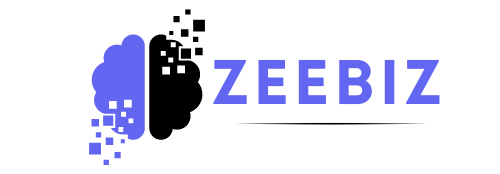In writing, creativity is essential for captivating and engaging readers. One popular technique that writers often use to add flair and emphasis is alliteration. Alliteration, the repetition of initial consonant sounds in a series of words, helps create rhythm, evoke emotions, and make text more memorable. Whether you’re a writer, teacher, marketer, or just someone interested in playful language, an alliteration generator can be an incredibly useful tool to inspire your next creative project.
In this article, we’ll dive into the concept of alliteration, explore the benefits of using an alliteration generator, and provide examples of how alliteration can be used effectively in different types of writing.
What is Alliteration?
Alliteration is a stylistic literary device where the same consonant sound repeats at the beginning of closely connected words. For example, in the phrase “Peter Piper picked a peck of pickled peppers,” the repetition of the “p” sound adds rhythm and makes the phrase more engaging. Alliteration is often used in poetry, advertising, literature, and other forms of writing to create impact and to enhance the reader’s experience.
How an Alliteration Generator Works
An alliteration generator is a tool that helps generate phrases or sentences with repeated initial consonant sounds. These generators often allow you to input a word or phrase and then automatically create an alliterative sentence based on your input. Most alliteration generators use algorithms that pull from databases of words, arranging them based on specific sounds to create catchy, rhythmic phrases.
Benefits of Using an Alliteration Generator
Using an alliteration generator offers multiple advantages for writers and creatives. Here’s why they’re worth a try:
- Sparks Creativity
When you’re stuck in a creative rut, an alliteration generator can provide fresh ideas, inspire unique phrases, and jumpstart your writing. - Saves Time
Instead of brainstorming alliterative phrases, a generator quickly delivers options, saving valuable time. - Enhances Writing Appeal
Alliteration often adds a poetic or memorable quality to text, making it more appealing and enjoyable for readers. - Great for Brainstorming
Need a catchy brand name or slogan? An alliteration generator can suggest multiple options that stand out.
Who Can Benefit from an Alliteration Generator?
1. Writers and Poets
Writers and poets frequently use alliteration to enhance their work. An alliteration generator provides fresh options that can add depth to your prose or poetry.
2. Teachers and Educators
Teaching alliteration to students becomes easier and more interactive when using an alliteration generator. Students can experiment with words, discovering the fun in phonetics and creative language.
3. Marketers and Advertisers
In marketing, catchy phrases are key to standing out. Alliteration can make slogans, headlines, and product names more memorable, and a generator helps marketers brainstorm these with ease.
4. Social Media Content Creators
Alliteration is highly effective in social media captions, hashtags, and posts. An alliteration generator helps content creators produce snappy, engaging text that resonates with audiences.
Popular Uses of Alliteration in Writing
1. Poetry and Literature
Alliteration adds a lyrical quality to poetry, helping convey emotions and create vivid imagery. Writers often use it to draw readers’ attention to specific lines or themes.
2. Slogans and Advertising
Brand names and slogans like “Coca-Cola” or “Dunkin’ Donuts” showcase how alliteration can enhance recall and create brand identity.
3. Tongue Twisters
Tongue twisters like “She sells seashells by the seashore” are fun exercises in alliteration, often used in vocal warm-ups or language learning.
4. Story Titles and Book Names
Titles that use alliteration, such as “Pride and Prejudice” or “Harry Potter,” are often more memorable and intriguing, enhancing a reader’s interest.
Examples of Alliteration Created with an Alliteration Generator
1. For Storytelling
- “Whispering winds wove wonders.”
- “Bold bears bravely battled.”
2. For Social Media Captions
- “Fantastic Fridays filled with fun!”
- “Sparkling summer sunshine!”
3. For Marketing and Branding
- “Perfectly Packaged Products”
- “Delightful Deals Daily”
Using an alliteration generator can produce engaging and memorable lines that fit various purposes.
How to Use an Alliteration Generator Effectively
1. Choose a Base Word
Start with a word that is central to your topic or theme. For example, if you’re creating content about travel, you might use “journey” or “wander.”
2. Experiment with Different Sounds
Play around with sounds until you find one that matches your message. An alliteration generator usually provides multiple options, so feel free to explore them.
3. Keep Your Audience in Mind
Remember who will be reading or hearing your content. Formal audiences may need subtler alliteration, while informal settings might allow for playful or humorous phrases.
4. Test Out the Results
Once you generate a list of options, read them out loud to see if they flow well and achieve the desired effect.
Free Alliteration Generators Available Online
Here are a few free tools you can try to get started with alliteration:
- ProWritingAid – A writing assistant with an alliteration feature.
- WordHippo – Provides synonyms and alliterative words.
- RhymeZone – A popular tool for poets and writers that can aid in finding alliterative phrases.
Each of these tools provides a unique set of features and offers valuable support for generating creative and engaging alliterative phrases.
Tips for Creating Your Own Alliteration Without a Generator
Sometimes, the best alliteration comes from brainstorming and creativity. Here are some tips:
- Focus on Themes
Consider the theme or tone of your piece. Choose sounds that match the emotions you want to convey. - Think of Rhythm
Alliteration is not just about sound; it’s also about rhythm. Test your phrases to see if they have a smooth, engaging flow. - Use a Thesaurus
Synonyms can help you find words that fit the sound you’re targeting, especially if you’re struggling to find the right words. - Practice with Tongue Twisters
Tongue twisters are great practice for creating strong alliteration. Try writing your own to see how many words you can link with a single consonant sound.
Advantages and Drawbacks of Alliteration

Advantages
- Enhanced Memorability: Alliterative phrases are catchy and easy to remember.
- Improved Flow: It adds rhythm and flow to sentences, making them pleasant to read.
- Increased Emotional Appeal: Certain sounds can evoke emotions or enhance imagery.
Drawbacks
- Overuse: Too much alliteration can seem forced and make writing feel unnatural.
- Limited Vocabulary: You may feel restricted in your choice of words, which could limit expressiveness.
Conclusion
Alliteration can add a dynamic quality to writing, making it an engaging and memorable experience for readers. Whether you’re crafting a poem, developing a slogan, or just want to have fun with language, an alliteration generator can spark creativity and offer inspiration. With a little practice, anyone can master the art of alliteration and make their words sing.
FAQs
What is an alliteration generator?
An alliteration generator is a tool that helps create phrases with repeated initial consonant sounds, adding rhythm and emphasis to writing.
Can I use an alliteration generator for free?
Yes, many online tools like ProWritingAid, WordHippo, and RhymeZone offer free alliteration generation features.
Why is alliteration effective in advertising?
Alliteration makes phrases more memorable, which can help brands stand out and create lasting impressions.
Is there a downside to using too much alliteration?
Yes, excessive alliteration can make writing feel forced or overly complex, so it’s best used in moderation.
How do I make my own alliteration without a generator?
Start by choosing a theme and a key consonant sound, then brainstorm words that fit. Practice with tongue twisters to enhance your skills.











